第47章 CHAPTER XIX(2)
In the midst there was a growing field of outspread food, gradually covering acres; the gifts were brought in, now by chanting deputations, now by carriers in a file; they were brandished aloft and declaimed over, with polite sacramental exaggerations, by the official receiver. He, a stalwart, well-oiled quadragenarian, shone with sweat from his exertions, brandishing cooked pigs. At intervals, from one of the squatted villages, an orator would arise. The field was almost beyond the reach of any human speaking voice; the proceedings besides continued in the midst; yet it was possible to catch snatches of this elaborate and cut-and-dry oratory - it was possible for me, for instance, to catch the description of my gift and myself as the ALII TUSITALA, O LE ALII O MALO TETELE - the chief White Information, the chief of the great Governments. Gay designation? In the house, in our three curule chairs, we sat and looked on. On our left a little group of the family. In front of us, at our feet, an ancient Talking-man, crowned with green leaves, his profile almost exactly Dante's; Popo his name. He had worshipped idols in his youth; he had been full grown before the first missionary came hither from Tahiti; this makes him over eighty. Near by him sat his son and colleague. In the group on our left, his little grandchild sat with her legs crossed and her hands turned, the model already (at some three years old) of Samoan etiquette. Still further off to our right, Mataafa sat on the ground through all the business; and still I saw his lips moving, and the beads of his rosary slip stealthily through his hand. We had kava, and the King's drinking was hailed by the Popos (father and son) with a singular ululation, perfectly new to my ears; it means, to the expert, 'Long live Tuiatua'; to the inexpert, is a mere voice of barbarous wolves. We had dinner, retired a bit behind the central pillar of the house; and, when the King was done eating, the ululation was repeated. I had my eyes on Mataafa's face, and I saw pride and gratified ambition spring to life there and be instantly sucked in again. It was the first time, since the difference with Laupepa, that Popo and his son had openly joined him, and given him the due cry as Tuiatua - one of the eight royal names of the islands, as I hope you will know before this reaches you.
Not long after we had dined, the food-bringing was over. The gifts (carefully noted and tallied as they came in) were now announced by a humorous orator, who convulsed the audience, introducing singing notes, now on the name of the article, now on the number; six thousand odd heads of taro, three hundred and nineteen cooked pigs; and one thing that particularly caught me (by good luck), a single turtle 'for the King' - LE TASI MO LE TUPU. Then came one of the strangest sights I have yet witnessed. The two most important persons there (bar Mataafa) were Popo and his son.
They rose, holding their long shod rods of talking men, passed forth from the house, broke into a strange dance, the father capering with outstretched arms and rod, the son crouching and gambolling beside him in a manner indescribable, and presently began to extend the circle of this dance among the acres of cooked food. WHATEVER THEY LEAPED OVER, WHATEVER THEY CALLED FOR, BECAME THEIRS. To see mediaeval Dante thus demean himself struck a kind of a chill of incongruity into our Philistine souls; but even in a great part of the Samoan concourse, these antique and (I understand) quite local manners awoke laughter. One of my biscuit tins and a live calf were among the spoils he claimed, but the large majority of the cooked food (having once proved his dignity) he re-presented to the King.
Then came the turn of LE ALII TUSITALA. He would not dance, but he was given - five live hens, four gourds of oil, four fine tapas, a hundred heads of taro, two cooked pigs, a cooked shark, two or three cocoanut branches strung with kava, and the turtle, who soon after breathed his last, I believe, from sunstroke. It was a royal present for 'the chief of the great powers.' I should say the gifts were, on the proper signal, dragged out of the field of food by a troop of young men, all with their lava-lavas kilted almost into a loin-cloth. The art is to swoop on the food-field, pick up with unerring swiftness the right things and quantities, swoop forth again on the open, and separate, leaving the gifts in a new pile: so you may see a covey of birds in a corn-field. This reminds me of a very inhumane but beautiful passage I had forgotten in its place. The gift-giving was still in full swing, when there came a troop of some ninety men all in tafa lava-lavas of a purplish colour; they paused, and of a sudden there went up from them high into the air a flight of live chickens, which, as they came down again, were sent again into the air, for perhaps a minute, from the midst of a singular turmoil of flying arms and shouting voices; I assure you, it was very beautiful to see, but how many chickens were killed?